
Those working for a more just world share their stories of community and possibility to host - and The Heinz Endowments President - Chris DeCardy. Episodes take you behind the scenes of in-the-news individuals and topics, revealing honesty, humanity and hope at every turn.
Those working for a more just world share their stories of community and possibility to host - and The Heinz Endowments President - Chris DeCardy. Episodes take you behind the scenes of in-the-news individuals and topics, revealing honesty, humanity and hope at every turn.
Episodes

Wednesday Oct 16, 2019
Wednesday Oct 16, 2019
“The Things They Carried” brought National Book Award-winning author Tim O’Brien fame, and the unparalleled poetic beauty and honesty of his novels, short stories and memoirs have cemented his status as one of our most revered contemporary writers.
Born and raised in southern Minnesota, Tim was a high school student body president who opposed the Vietnam War, and was drafted several weeks after graduation. He served in the area known as “Pinkville,” the location of two sites where American massacres of Vietnamese villagers occurred.
“When my life collided with Vietnam, I realized not only that I wanted to write, but that I had to write,” Tim says of his tour of duty in the early ‘70s. “It was my way of relieving the pressure on my spirit and my dreams, and it became a live-saving thing.”
Tim’s proposition that we all carry things with us — whether physical or in our memories — that affect how we move through the world informs his writing, from short story compilation “If I Die in a Combat Zone, Box Me Up and Ship Me Home,” to novels “Going After Cacciato,” “Northern Lights,” and “The Things We Carried.”
Tim talks with “We Can Be” host Grant Oliphant about the joyous memory of his father that he still carries with him; the kinship he feels with Post-9/11 veterans; his work on the Pittsburgh-based hit television show “This is Us;” and the new collection of letters and prose he wrote for his young sons, “Dad’s Maybe Book.”
“We need to be open to the ‘maybe-ness’ of our lives,” Tim says. “Open to learning, to leaning toward decency, beauty and humility.”
Listen today at heinz.org/podcast, or on leading podcast sites including Stitcher, Podbean, GooglePlay, iTunes and Spotify.
“We Can Be” is hosted by Heinz Endowments President Grant Oliphant, and produced by the Endowments and Treehouse Media. Theme and incidental music by Josh Slifkin. Guest image by Josh Franzos. Guest inquiries can be made to Scott Roller at sroller@heinz.org.
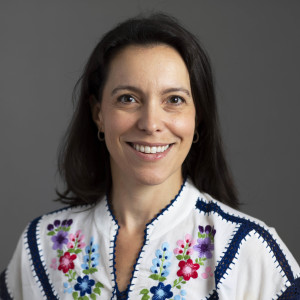
Wednesday Oct 09, 2019
Building an army of support for refugees: Hello Neighbor’s Sloane Davidson S02EP15
Wednesday Oct 09, 2019
Wednesday Oct 09, 2019
As the national rhetoric about refugees skews toward outright xenophobia, Hello Neighbor Founder and CEO Sloane Davidson is “creating an army of support” that is changing their lives and strengthening the fabric of neighborhoods.
At a 2016 family Thanksgiving dinner with five Syrian refugees who had recently resettled in Pittsburgh, Sloane realized something powerful was happening. She knew if she could help replicate the good vibes of that fellowship with other refugees and neighbors, both would be stronger for it.
Sloane felt the immense power of that human-to-human interaction, and with that spark, Hello Neighbor was born.
“Just like any other family in America, refugees are just trying to get by, do right by their kids, thrive, survive, and find joy,” Sloane tells “We Can Be” host Grant Oliphant. “One-on-one interaction helps make our similarities crystal-clear.”
She talks about her journey from popular blog writer and around-the-world volunteer to a Washington Post-profiled nonprofit founder. She also shares why the gift of growing up in the shadow of the iconic “Mr. Rogers’ Neighborhood” television show still guides her life.
Sloane knows it won’t be easy, but she is steadfast in her hope and vision. “The other side isn’t resting,” she says. “So we can’t either.”
Listen today at heinz.org/podcast, or on leading podcast sites including Stitcher, Podbean, GooglePlay, iTunes, and Spotify.
“We Can Be” is hosted by Heinz Endowments President Grant Oliphant, and produced by the Endowments and Treehouse Media. Theme and incidental music by Josh Slifkin. Guest image by Josh Franzos. Guest inquiries: Scott Roller at sroller@heinz.org.

Wednesday Oct 02, 2019
Wednesday Oct 02, 2019
In 2010, journalist and Postindustrial media co-founder Carmen Gentile was embedded with the 32 Calvary regiment in eastern Afghanistan when he was struck in the right side of the face by a rocket-propelled grenade.
Carmen details the moment he was blinded in his right eye – and the ensuing years of heartbreak and healing, including his return to Afghanistan and his decision to make Pittsburgh his base – in his 2018 book “Blindsided by the Taliban: A Journalist’s Story of War, Trauma, Love and Loss.”
In this conversation with “We Can Be” host Grant Oliphant, Carmen gives his frank, first-hand account of the true cost of our 18-year war in Afghanistan, why it’s considered un-American to question our military, and how he came to turn his efforts to reporting and producing stories that lift up innovators of the Rust Belt and Greater Appalachia through Postindustrial’s print and digital media outlets.
“I didn’t want this to be the defining moment for the rest of my life,” said Carmen about his injury in Afghanistan. “I knew I wanted to get back out there, and tell the stories that need to be told.”
Hear about his journey to tell the stories of our time in this episode of “We Can Be.”
Listen today at heinz.org/podcast, or on leading podcast sites including Stitcher, Podbean, GooglePlay, iTunes, and Spotify.
“We Can Be” is hosted by Heinz Endowments President Grant Oliphant, and produced by the Endowments and Treehouse Media. Theme music by Josh Slifkin; incidental by music Giuseppi Capolupa. Guest image by Josh Franzos. Guest inquiries can be made to Scott Roller at sroller@heinz.org.
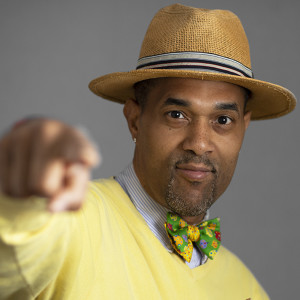
Wednesday Sep 25, 2019
Wednesday Sep 25, 2019
Emmy-winning composer, in-demand director and respected mentor Emmai Alaquiva is candid about what rescued him during his early hard times: “The arts saved my life.”
CEO of the media production entity Ya Momz House (a tribute to his own mother) and a centrifugal force of light and positivity, Emmai shares his story of homelessness; his early ‘90s hip-hop days with Pensoulzinakup; and how he’s built a career that has included working with The Roots, Dr. Maya Angelou, Solange Knowles and Common.
He’s giving back, too, empowering rising creatives through the youth-arts education and mentoring program Hip-Hop On L.O.C.K.; speaking out as an advocate for a living wage; and opening eyes to the Black Lives Matter movement, oppression, homophobia and xenophobia through his Optic Voices photography project.
“When I was down, I said ‘God, if you allow me to get on my feet, I’ll spend the rest of my life helping others get on their feet,’ ” Emmai recalls.
Experience Emmai’s energy, passion and light as he tells his story to host Grant Oliphant in this episode of “We Can Be.”
Listen today at heinz.org/podcast, or on leading podcast sites including Stitcher, Podbean, GooglePlay, Itunes, and Spotify.
“We Can Be” is hosted by Heinz Endowments President Grant Oliphant, and produced by the Endowments and Treehouse Media. Guest image by Josh Franzos. Guest inquiries: Scott Roller at sroller@heinz.org.
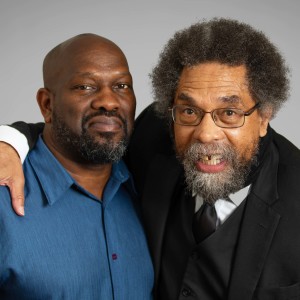
Wednesday Sep 18, 2019
Wednesday Sep 18, 2019
In part two of host Grant Oliphant’s two-episode conversation with Dr. Cornel West and Bakari Kitwana, they examine the revolution in priorities our society needs if we are to thrive, the young activists that are driving their hope, and why empathy – on both sides of the aisle – is key.
Celebrated activist and academic Dr. Cornel West is professor of the Practice of Public Philosophy at Harvard University, the author of a number of bestsellers, a prominent pop culture figure, and a revered voice in the social justice realm.
Journalist, activist and political analyst Bakari Kitwana is a senior media fellow at the Harvard Law School-based think tank The Jamestown Project, and author of “The Hip-Hop Generation: Young Blacks and the Crisis in African-American Culture,” which is part of the curriculum at more than 100 universities nationwide.
“For young people who are activists, one of the most important things for them to remember is that they are fighting not only for themselves, but for generations to come,” says Mr. Kitwana. “We need to have a vision that allows us to dream of a world that is yet to come.”
“Every generation has to grapple with obsession with power, with a too-narrow definition of success,” says Dr. West. “We need a revolution in priorities.”
Listen today at heinz.org/podcast, or on leading podcast sites including Stitcher, Podbean, GooglePlay, iTunes, and Spotify.
“We Can Be” is hosted by The Heinz Endowments President Grant Oliphant, and produced by the Endowments and Treehouse Media. Theme music by Josh Slifkin; guest images by Josh Franzos. Guest inquiries: Scott Roller at sroller@heinz.org.

Wednesday Sep 11, 2019
Wednesday Sep 11, 2019
In part one of a two-episode conversation, Dr. Cornel West and Bakari Kitwana examine why joy is important in our lives (especially for those in the social justice realm), what reparations could mean to our nation, and why artists are the indispensable ingredient in society today.
Celebrated activist and academic Dr. Cornel West is professor of the Practice of Public Philosophy at Harvard University, and the author of bestsellers such as “Race Matters” and “Black Prophetic Fire.” He has written a dozen more seminal works about modern civil rights issues and figures. He also is a prominent pop culture figure, with appearances in two “Matrix” movies, and is a favorite guest on a range of news programs.
Journalist, activist and political analyst Bakari Kitwana is a senior media fellow at the Harvard Law-based think tank The Jamestown Project, and author of “The Hip-Hop Generation: Young Blacks and the Crisis in African-American Culture,” which is part of the curriculum at more than 100 universities nationwide. His political commentary has been heard on CNN, FOX News, C-Span, PBS and NPR, and he has been a consultant for the Rock and Roll Hall of Fame.
“We are in a quagmire where wealth and inequality crush those who are struggling, and the structures we have in place to ensure that doesn’t happen are no longer working,” says Mr. Kitwana. “We can hope to luck our way out of it, but I think it is going to take more than that.”
It is our young people that will give that “more,” says Dr. West. “On the ground, especially among the younger generation, we have more sensitivity and empathy than we’ve ever had in our country.”
“We Can Be” is hosted by Heinz Endowments President Grant Oliphant, and produced by the Endowments and Treehouse Media. Theme music by Josh Slifkin; guest images by Josh Franzos. Guest inquiries: contact Scott Roller at sroller@heinz.org.

Wednesday May 29, 2019
Wednesday May 29, 2019
When Wasi Mohamed led the Muslim community in an international fundraising effort that raised a quarter of a million dollars for the families of those killed in the attack on the Tree of Life Synagogue in Pittsburgh, Pennsylvania, the world got to know the man many have called “a 24-hours-a-day bridge-builder.”
Born and raised in an Indian-Muslim family in central Pennsylvania, Wasi recalls his childhood home being pelted with mustard packets and paint bombs, and dynamite exploding their mailbox.
“It changes who you are at a very young age,” he says.
But the change it spurred in Wasi was to push forward with palpable positivity when interacting with others and to follow a calling to build bridges between disparate communities, first as executive director of the Islamic Center of Pittsburgh, and currently addressing economic justice as Pittsburgh local director of community entrepreneurship with Forward Cities.
Wasi speaks with refreshing candor about how he’s seen the United States’ “wheel of oppression” roll in his lifetime, how we can regain the grace that has been lost by racist narratives that program division into our national character, and why he believes we can, indeed, be “different but united.”
“We Can Be” is hosted by Heinz Endowments President Grant Oliphant, and produced by the Endowments and Treehouse Media. Theme music by Josh Slifkin; incidental music by Giuseppe Capolupo. Guest image by Josh Franzos. Guest inquiries: Scott Roller at sroller@heinz.org.

Wednesday May 22, 2019
Wednesday May 22, 2019
More than 2,300 lives have been lost and 8,500 people wounded in over 2,000 mass shootings in the United States in the past seven years. Survivors of the attack at Marjory Stoneman Douglas High School in Parkland, Florida., that left 17 dead know this trauma of violence all too well.
But Parkland students are organizing, speaking out, and reaching across boundaries to offer support to others who have survived or been affected by gun violence, including members of the Pittsburgh community still reeling from the attack at the Tree of Life Synagogue.
Recorded in the midst of a visit hosted by Jewish Community Center of Greater Pittsburgh's Center for Loving Kindness in conjunction with the teen service program J-Serve, Parkland students Adam Habona and Alyssa Fletcher share their journey to activism.
Alyssa was an organizer of the Parkland “March for Our Lives” rally, which grew to include 800 partner marches around the world and has been described as one of the biggest youth-led protests since the Vietnam War.
“Your heart beating means you have purpose in this world,” says Adam, who has traveled extensively to spread word about how “that day” rebooted his life forever.
Adam and Alyssa talk about how their faith – Muslim and Jewish, respectively – has fueled their anti-gun-violence activism, the intense bond they feel with students from Pittsburgh and Christchurch, New Zealand, and why, as Alyssa says, “We are not going away.”
“We Can Be” is hosted by Heinz Endowments President Grant Oliphant, and produced by the Endowments and Treehouse Media. Theme and incidental music by Josh Slifkin. Guest image by Josh Franzos. Guest inquiries: Scott Roller sroller@heinz.org
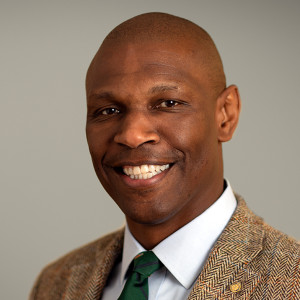
Wednesday May 15, 2019
Wednesday May 15, 2019
As a United States Air Force pilot, newly engaged to his South African fiancée, Chris Howard ejected from his aircraft as it fell into a nosedive during a solo training mission in January 1995. Twenty years later, he was one of the youngest university presidents in the United States.
Dr. Chris Howard, president of Robert Morris University since 2015, grew up in Plano, Texas, the great-great-grandson of an enslaved man, and the son of parents who instilled in him the values of humility and service.
As a high school and United States Air Force Academy football star, Dr. Howard guided his teams to championships, and used those leadership skills in active duty tours in Afghanistan and Bosnia. Through it all, he credits a strong cohort of mentors as key to navigating his path.
“Mentoring is a form of service where you don’t have to be a billionaire to change someone’s life,” he says. “It’s empowering, and it’s an honor.”
In this episode of “We Can Be,” Dr. Howard discusses the “only-ness” of being the singular black student in fourth grade, the Zulu word that is his North Star, and why he is using his capital to speak up for veterans and gender equality.
“We Can Be” is hosted by Heinz Endowments President Grant Oliphant, and produced by the Endowments and Treehouse Media. Theme and incidental music by Josh Slifkin. Guest image by Josh Franzos. Guest inquiries: Scott Roller at sroller@heinz.org.
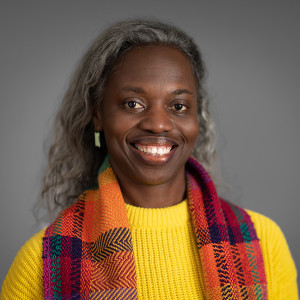
Wednesday May 08, 2019
Art is making souls soar in this rapidly changing neighborhood S02EP07
Wednesday May 08, 2019
Wednesday May 08, 2019
“I got into art-making because I want show the different ways that people show up in the world, and to represent voices that are often not heard,” says janera solomon, executive director of the Kelly Strayhorn Theater. That aim has never been needed more than now, as her neighborhood grapples with rapid change and the risk of cultural erasure.
In the past decade, Pittsburgh’s historic East Liberty community has seen big-name tech companies set up shop in former warehouses, heated controversies ignited about affordable housing, and black-owned businesses priced out of their long-time locations. Steady through it all has been janera and the Kelly Strayhorn Theater, named for native sons/entertainment legends Gene Kelly and Billy Strayhorn.
In addition to her passion for bringing world-class art to her city and giving agency to often underrepresented voices, janera champions a belief in the power of art to address the big issues of our day.
“If we’re going to make the case that our art – and our arts organizations - are important, they have to be more important than just for art’s sake,” says janera. “We have a responsibility to show up for all of the issues that are impacting our communities, and to bring all of our creativity, imagination and rigor to the table.”
Hear janera explain the role her immigration story plays in her artistic vision, the three things she believes today’s art world must consider, and how her mom taught her to look fear in the eye – all in this episode of “We Can Be.”
“We Can Be” is hosted by The Heinz Endowments President Grant Oliphant, and produced by the Endowments and Treehouse Media. Theme music by Josh Slifkin, with incidental music by Giuseppe Capolupo. Guest image by Josh Franzos. Guest inquiries: Scott Roller at sroller@heinz.org.
